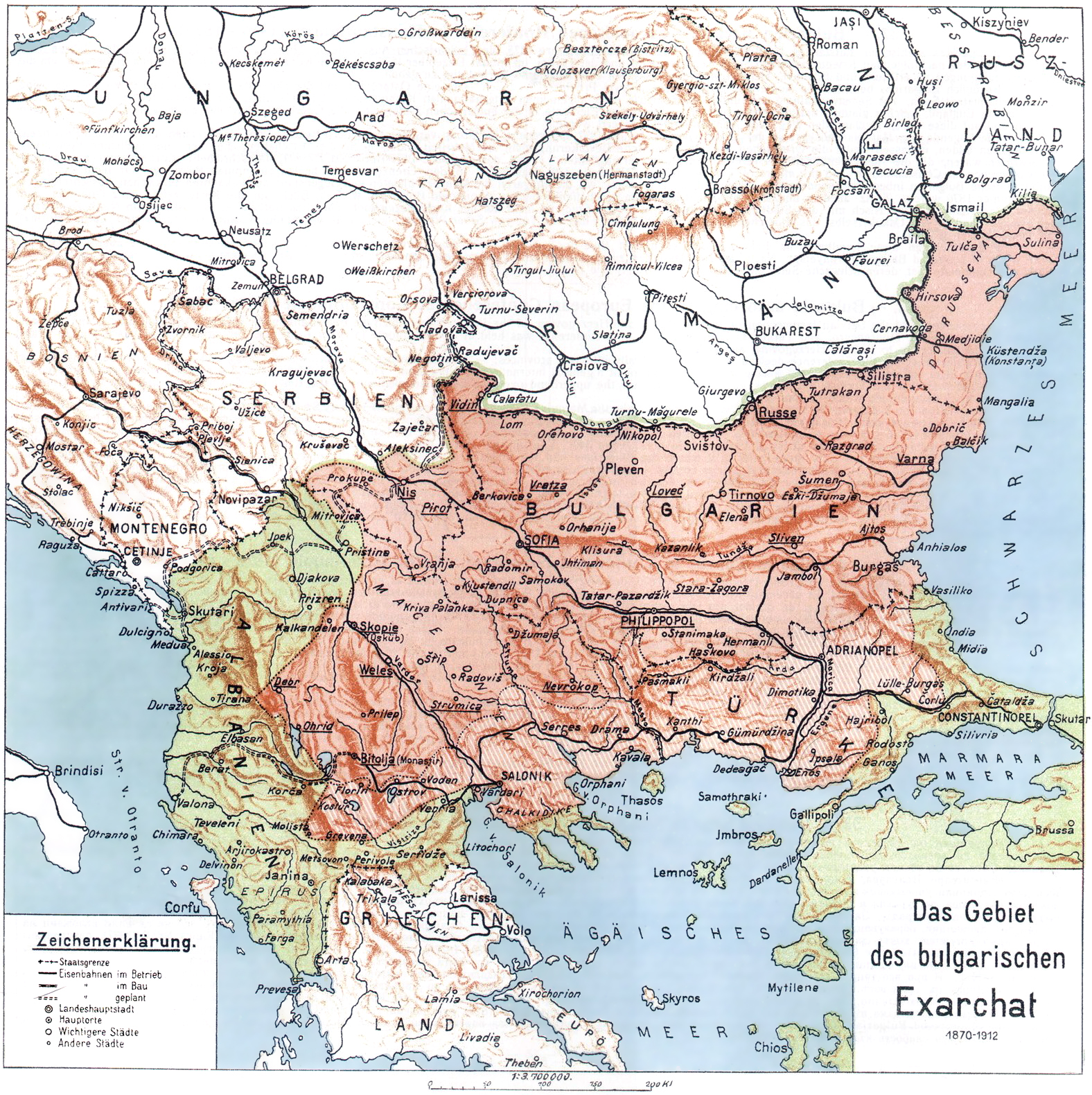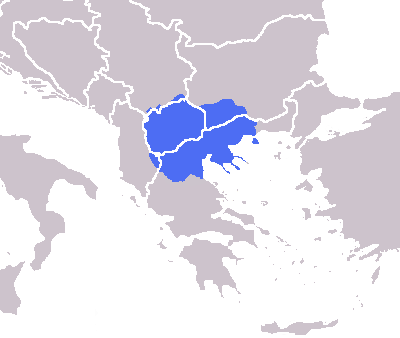|
Macedonian Youth Secret Revolutionary Organization
The Macedonian Youth Secret Revolutionary Organization or MYSRO ( bg, Македонска младежка тайна революционна организация, mk, Македонска младинска тајна револуционерна организација), was the name of a secret pro-Bulgarian youth organization established by the Internal Macedonian Revolutionary Organization, active across the most regions of Macedonia between 1922 and 1941. The statue of MYSRO was approved personally from the leader of the Internal Macedonian Revolutionary Organization (IMRO), Todor Alexandrov. The aim of MYSRO was in concordance with the statue of IMRO – unification of all of Macedonia in an autonomous unit within Greater Bulgaria. It was established in 1921–1922 in Zagreb by students from Vardar Macedonia, it soon gained influence amongst Macedonian Bulgarian communities in Belgrade, Vienna, Graz, Prague, Ljubljana and other places where Macedonian students lived. ... [...More Info...] [...Related Items...] OR: [Wikipedia] [Google] [Baidu] |
Greeks
The Greeks or Hellenes (; el, Έλληνες, ''Éllines'' ) are an ethnic group and nation indigenous to the Eastern Mediterranean and the Black Sea regions, namely Greece, Greek Cypriots, Cyprus, Greeks in Albania, Albania, Greeks in Italy, Italy, Greeks in Turkey#History, Turkey, Greeks in Egypt, Egypt, and, to a lesser extent, other countries surrounding the Mediterranean Sea. They also form a significant Greek diaspora, diaspora (), with Greek communities established around the world.. Greek colonies and communities have been historically established on the shores of the Mediterranean Sea and Black Sea, but the Greek people themselves have always been centered on the Aegean Sea, Aegean and Ionian Sea, Ionian seas, where the Greek language has been spoken since the Bronze Age.. Until the early 20th century, Greeks were distributed between the Greek peninsula, the western coast of Asia Minor, the Black Sea coast, Cappadocia in central Anatolia, Egypt, the Balkans, Cyprus, an ... [...More Info...] [...Related Items...] OR: [Wikipedia] [Google] [Baidu] |
Bulgarian Nationalism
Bulgarian irredentism is a term to identify the territory associated with a historical national state and a modern Bulgarian irredentist nationalist movement in the 19th and 20th centuries, which would include most of Macedonia, Thrace and Moesia. History The larger proposed Bulgarian state was suggested under the Treaty of San Stefano in 1878. The issue of irredentism and nationalism gained greater prominence after the Treaty of San Stefano. It established a Principality of Bulgaria, with territory including most of Moesia - the plain between the Danube and the Balkan mountains range (Stara Planina), the regions of Sofia, Pirot, and Vranje in the Morava Valley, Thrace - Northern Thrace, parts of Eastern Thrace, and nearly all of Macedonia. This treaty laid grounds for much of the later claims for a Greater Bulgaria. However, the Treaty of San Stefano was a preliminary one, and the borders of the newly created Bulgaria were established in the Treaty of Berlin. It saw th ... [...More Info...] [...Related Items...] OR: [Wikipedia] [Google] [Baidu] |
Vardar Macedonia (1918–1941)
Vardar Macedonia ( Macedonian and sr, Вардарска Македонија, ''Vardarska Makedonija'') was the name given to the territory of the Kingdom of Serbia (1912–1918) and Kingdom of Yugoslavia (1918–1941) roughly corresponding to today's North Macedonia. It covers the northwestern part of geographical Macedonia, whose modern borders came to be defined by the mid-19th century. History Vardar Macedonia usually refers to the central part of the region of Macedonia attributed to the Kingdom of Serbia by the Treaty of Bucharest (1913) after the Balkan Wars. The territory is named after the Vardar, the major river that cuts across the region from northwest to southeast, to distinguish it from both Greek Macedonia and the region around the Pirin Mountain in Bulgaria. The region was initially known as ''Serbian Macedonia'' although the use of the name ''Macedonia'' was prohibited later in the Kingdom of Yugoslavia, due to the implemented policy of Serbianisation of the l ... [...More Info...] [...Related Items...] OR: [Wikipedia] [Google] [Baidu] |
Defunct Organizations Based In Bulgaria
{{Disambiguation ...
Defunct (no longer in use or active) may refer to: * ''Defunct'' (video game), 2014 * Zombie process or defunct process, in Unix-like operating systems See also * * :Former entities * End-of-life product * Obsolescence Obsolescence is the state of being which occurs when an object, service, or practice is no longer maintained or required even though it may still be in good working order. It usually happens when something that is more efficient or less risky r ... [...More Info...] [...Related Items...] OR: [Wikipedia] [Google] [Baidu] |
Secret Societies In Bulgaria
Secrecy is the practice of hiding information from certain individuals or groups who do not have the "need to know", perhaps while sharing it with other individuals. That which is kept hidden is known as the secret. Secrecy is often controversial, depending on the content or nature of the secret, the group or people keeping the secret, and the motivation for secrecy. Secrecy by government entities is often decried as excessive or in promotion of poor operation; excessive revelation of information on individuals can conflict with virtues of privacy and confidentiality. It is often contrasted with social transparency. Secrecy can exist in a number of different ways: encoding or encryption (where mathematical and technical strategies are used to hide messages), true secrecy (where restrictions are put upon those who take part of the message, such as through government security classification) and obfuscation, where secrets are hidden in plain sight behind complex idiosyncrati ... [...More Info...] [...Related Items...] OR: [Wikipedia] [Google] [Baidu] |
Youth Organizations Established In 1921
Youth is the time of life when one is young. The word, youth, can also mean the time between childhood and adulthood (Maturity (psychological), maturity), but it can also refer to one's peak, in terms of health or the period of life known as being a young adult. Youth is also defined as "the appearance, freshness, vigor, spirit, etc., characteristic of one, who is young". Its definitions of a specific age range varies, as youth is not defined Chronology, chronologically as a stage that can be tied to specific age ranges; nor can its end point be linked to specific activities, such as taking unpaid work, or having Human sexual activity, sexual relations. Youth is an experience that may shape an individual's level of dependency, which can be marked in various ways according to different Culture, cultural perspectives. Personal experience is marked by an individual's cultural norms or traditions, while a youth's level of dependency means the extent to which they still rely on the ... [...More Info...] [...Related Items...] OR: [Wikipedia] [Google] [Baidu] |
Yugoslav Macedonia
The Socialist Republic of Macedonia ( mk, Социјалистичка Република Македонија, Socijalistička Republika Makedonija), or SR Macedonia, commonly referred to as Socialist Macedonia or Yugoslav Macedonia, was one of the six constituent republics of the post-World War II Socialist Federal Republic of Yugoslavia, and a nation state of the Macedonians. After the transition of the political system to parliamentary democracy in 1990, the Republic changed its official name to Republic of Macedonia in 1991,''On This Day'' – Macedonian Information Agency – MIA , see: 1991 and with the beginning of the |
Modern History Of Macedonia (region)
Modern may refer to: History * Modern history ** Early Modern period ** Late Modern period *** 18th century *** 19th century *** 20th century ** Contemporary history * Moderns, a faction of Freemasonry that existed in the 18th century Philosophy and sociology * Modernity, a loosely defined concept delineating a number of societal, economic and ideological features that contrast with "pre-modern" times or societies ** Late modernity Art * Modernism ** Modernist poetry * Modern art, a form of art * Modern dance, a dance form developed in the early 20th century * Modern architecture, a broad movement and period in architectural history * Modern music (other) Geography *Modra, a Slovak city, referred to in the German language as "Modern" Typography * Modern (typeface), a raster font packaged with Windows XP * Another name for the typeface classification known as Didone (typography) * Modern, a generic font family name for fixed-pitch serif and sans serif fonts (for ex ... [...More Info...] [...Related Items...] OR: [Wikipedia] [Google] [Baidu] |
Political History Of Bulgaria
Politics (from , ) is the set of activities that are associated with making decisions in groups, or other forms of power relations among individuals, such as the distribution of resources or status. The branch of social science that studies politics and government is referred to as political science. It may be used positively in the context of a "political solution" which is compromising and nonviolent, or descriptively as "the art or science of government", but also often carries a negative connotation.. The concept has been defined in various ways, and different approaches have fundamentally differing views on whether it should be used extensively or limitedly, empirically or normatively, and on whether conflict or co-operation is more essential to it. A variety of methods are deployed in politics, which include promoting one's own political views among people, negotiation with other political subjects, making laws, and exercising internal and external force, including w ... [...More Info...] [...Related Items...] OR: [Wikipedia] [Google] [Baidu] |
1930s In Bulgaria
Year 193 ( CXCIII) was a common year starting on Monday (link will display the full calendar) of the Julian calendar. At the time, it was known as the Year of the Consulship of Sosius and Ericius (or, less frequently, year 946 ''Ab urbe condita''). The denomination 193 for this year has been used since the early medieval period, when the Anno Domini calendar era became the prevalent method in Europe for naming years. Events By place Roman Empire * January 1 – Year of the Five Emperors: The Roman Senate chooses Publius Helvius Pertinax, against his will, to succeed the late Commodus as Emperor. Pertinax is forced to reorganize the handling of finances, which were wrecked under Commodus, to reestablish discipline in the Roman army, and to suspend the food programs established by Trajan, provoking the ire of the Praetorian Guard. * March 28 – Pertinax is assassinated by members of the Praetorian Guard, who storm the imperial palace. The Empire is auctioned o ... [...More Info...] [...Related Items...] OR: [Wikipedia] [Google] [Baidu] |
1920s In Bulgaria
Nineteen or 19 may refer to: * 19 (number), the natural number following 18 and preceding 20 * one of the years 19 BC, AD 19, 1919, 2019 Films * ''19'' (film), a 2001 Japanese film * ''Nineteen'' (film), a 1987 science fiction film Music * 19 (band), a Japanese pop music duo Albums * ''19'' (Adele album), 2008 * ''19'', a 2003 album by Alsou * ''19'', a 2006 album by Evan Yo * ''19'', a 2018 album by MHD * ''19'', one half of the double album '' 63/19'' by Kool A.D. * '' Number Nineteen'', a 1971 album by American jazz pianist Mal Waldron * ''XIX'' (EP), a 2019 EP by 1the9 Songs * "19" (song), a 1985 song by British musician Paul Hardcastle. * "Nineteen", a song by Bad4Good from the 1992 album ''Refugee A refugee, conventionally speaking, is a displaced person who has crossed national borders and who cannot or is unwilling to return home due to well-founded fear of persecution. [...More Info...] [...Related Items...] OR: [Wikipedia] [Google] [Baidu] |





